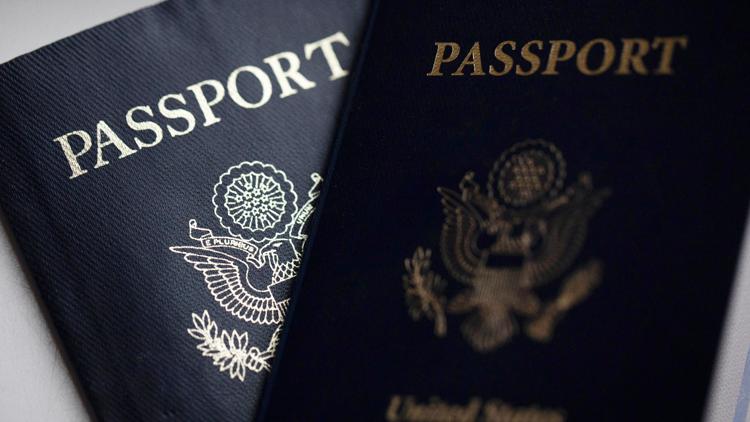World
US Passport Ranks Drop Out of Top 10 for First Time Ever

The United States has experienced a significant decline in its global standing, as it has dropped out of the top 10 list of the most powerful passports for the first time. According to the latest **Henley Passport Index**, the U.S. passport now ranks **ranked 11th**, reflecting a shift in international perception influenced by recent political developments and foreign policy changes.
This alteration in ranking highlights not only the changing dynamics of international relations but also the growing prominence of other nations. Countries like **Japan** and **Singapore** now lead the list, allowing their citizens visa-free access to **193** and **192** destinations respectively. The United Kingdom follows closely behind, with its passport granting access to **187** countries.
The reduction in the U.S. passport’s power can be attributed to a more isolationist foreign policy stance adopted in recent years. As the country has moved towards a more inward-looking approach, other nations have reacted accordingly. This shift has resulted in a tightening of visa agreements and increased scrutiny of U.S. citizens travelling abroad.
One notable example is the increased restrictions placed by several countries on American travelers, a trend that has escalated over the past few years. In contrast, countries such as **Germany**, which is currently ranked **sixth** with access to **191** destinations, have maintained strong diplomatic ties, contributing to the strength of their passports.
The implications of this decline extend beyond mere travel convenience. A powerful passport not only facilitates international travel but also symbolizes a nation’s global influence and diplomatic relationships. As the U.S. navigates this new reality, its citizens may find themselves facing more barriers when seeking to travel internationally.
The data from the Henley Passport Index reveals that the overall landscape of global mobility is evolving. Countries previously considered less influential are making strides in enhancing their passport strength. For instance, **Australia** and **Canada** also rank highly, with their passports providing access to **185** and **183** countries, respectively.
As the United States reassesses its position on the world stage, it may need to re-evaluate its foreign policy strategies to regain its standing in the passport rankings. The consequences of this decline are far-reaching, affecting not only travel but also how the world perceives the U.S. as a global leader.
In conclusion, the exit of the U.S. from the top 10 passport rankings serves as a wake-up call regarding the importance of international relations and the need for strong diplomatic ties. How the U.S. addresses this issue in the coming years could significantly influence its global standing and the travel experiences of its citizens.
-

 Science1 month ago
Science1 month agoUniversity of Hawaiʻi Leads $25M AI Project to Monitor Natural Disasters
-

 Science2 months ago
Science2 months agoInterstellar Object 3I/ATLAS Emits Unique Metal Alloy, Says Scientist
-

 Science2 months ago
Science2 months agoResearchers Achieve Fastest Genome Sequencing in Under Four Hours
-

 Business2 months ago
Business2 months agoIconic Sand Dollar Social Club Listed for $3 Million in Folly Beach
-

 Politics2 months ago
Politics2 months agoAfghan Refugee Detained by ICE After Asylum Hearing in New York
-

 Business2 months ago
Business2 months agoMcEwen Inc. Secures Tartan Lake Gold Mine Through Acquisition
-

 Health2 months ago
Health2 months agoPeptilogics Secures $78 Million to Combat Prosthetic Joint Infections
-

 Lifestyle2 months ago
Lifestyle2 months agoJump for Good: San Clemente Pier Fundraiser Allows Legal Leaps
-

 Science2 months ago
Science2 months agoMars Observed: Detailed Imaging Reveals Dust Avalanche Dynamics
-

 Health2 months ago
Health2 months agoResearcher Uncovers Zika Virus Pathway to Placenta Using Nanotubes
-

 Entertainment2 months ago
Entertainment2 months agoJennifer Lopez Addresses A-Rod Split in Candid Interview
-

 Business2 months ago
Business2 months agoSan Jose High-Rise Faces Foreclosure Over $182.5 Million Loan








